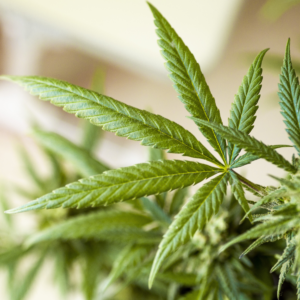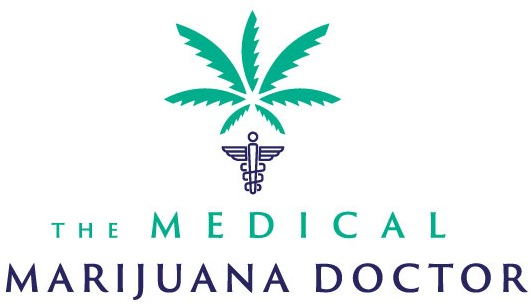Medical marijuana has been a topic of discussion for many years, and its legalization in various states has brought relief to patients suffering from a variety of medical conditions. In Florida, medical marijuana is legal for patients who meet certain qualifying conditions. This article will provide detailed information on the qualifying conditions for medical marijuana in Florida and guide you on how to obtain a medical marijuana card certification with the help of a medical marijuana doctor.
Medical Marijuana in Florida and What You Need to Know About Qualifying Conditions

Qualifying Conditions
The Office of Medical Marijuana Use (OMMU) is part of the Florida Department of Health and is responsible for running the state’s medical marijuana use registry. The OMMU provides tools for patients to track their use and apply for or renew their identification card. The qualifying conditions for medical marijuana in Florida include:
1. Cancer
2. Epilepsy
3. Glaucoma
4. HIV/AIDS
5. Post-traumatic stress disorder (PTSD)
6. Amyotrophic lateral sclerosis (ALS)
7. Crohn’s disease
8. Parkinson’s disease
9. Multiple sclerosis (MS)
10. Medical conditions of the same kind or class as or comparable to the others listed.
It is important to note that “medical conditions of the same kind or class as or comparable to” listed conditions can also qualify for medical marijuana treatment. This means that if a patient has a medical condition that is not listed but is similar in nature to one of the listed conditions, they may still qualify for medical marijuana treatment.
Obtaining a Medical Marijuana Card
To obtain a medical marijuana card in Florida, patients must follow these steps:
1. Consult a Qualified Physician: Patients must consult a qualified physician who is registered with the OMMU. The physician will determine if the patient has a qualifying condition and if medical marijuana is an appropriate treatment option.
2. Complete the Application: Once the physician determines that the patient qualifies for medical marijuana treatment, the patient must complete the application for a medical marijuana card. This application can be completed online through the OMMU website.
3. Pay the Fee: There is a fee associated with obtaining a medical marijuana card. The fee must be paid at the time of application.
4. Receive the Card: Once the application is approved, the patient will receive their medical marijuana card in the mail.
It is important to note that only certified, licensed medical marijuana patients may shop at Florida’s licensed dispensaries. Medical marijuana records are private under HIPPA, and police can access medical marijuana use registry records during investigations.
Dosage and Supply Limits
Florida health officials have released a rule setting THC dosage amounts and supply limits for medical marijuana. The rule establishes a 70-day total supply limit of 24,500 mg of THC for nonsmokable marijuana. Different routes of administration have dosage caps, including edibles, inhalation, and tinctures. A state law imposes a 2.5-ounce limit on smokable marijuana purchases over a 35-day period. Limits for whole flower and other smoked products are based on weight, not THC levels.
Doctors can seek an override for patients who need to exceed the limits, but there is no appeal process for patients or doctors. Some doctors and patients are critical of the emergency rule’s power to exclude comments from physicians and patients in the state.
Disqualifications for Obtaining a Medical Marijuana Card
While many patients with qualifying conditions are eligible to receive a medical marijuana card in Florida, there are certain factors that can disqualify someone from being able to obtain one:
1. Age: Patients must be at least 18 years old to qualify for a medical marijuana card in Florida. However, minors can qualify if they have a terminal condition, have tried other treatments without success, and have the consent of a legal guardian.
2. Residency: Only Florida residents and seasonal residents are eligible to apply for a medical marijuana card. Seasonal residents must provide proof of temporary residency.
3. Drug Convictions: Individuals with drug felonies on their record may be disqualified from obtaining a medical marijuana card unless the conviction was expunged or the individual received a full pardon.
4. Physician Recommendation: A recommendation from a qualified physician is required to obtain a medical marijuana card. If a physician determines that medical marijuana is not an appropriate treatment option for your condition, you will not be able to obtain a card.
5. Failure to Provide Required Documentation: Applicants must provide all required documentation, including proof of residency, medical records, and a valid ID. Failure to provide the necessary documentation can result in disqualification.
It is important to note that even if you meet all the qualifications, the final decision is up to the qualified physician and the OMMU. Additionally, the use of medical marijuana may have implications for employment, as employers are not required to accommodate medical marijuana use.
If you believe you have a qualifying condition and are interested in obtaining a medical marijuana card in Florida, contact The Medical Marijuana Dr, Vivek Tirmel. At The Medical Marijuana Dr., we specialize in providing fast and affordable medical marijuana card evaluations and certifications. Visit us online or call (954) 994-7002 today to get started.
Conclusion
Medical marijuana has proven to be a beneficial treatment option for many patients suffering from a variety of medical conditions. If you believe you have a qualifying condition and are interested in obtaining a medical marijuana card in Florida, contact The Medical Marijuana Dr, Vivek Tirmel. At The Medical Marijuana Dr., we specialize in providing fast and affordable medical marijuana card evaluations and certifications. Visit us online or call (954) 994-7002 today to get started.
